Columns
In Honor of Last Night’s CMA Awards, We Offer Some Alternative “Country” Music
“Alt-Country” is a spurious label we give to music that, I guess, sounds like country music but weirder, or more lo-fi, or made by someone signed to Saddle Creek Records, or something.
I understand the concept musically, but if the internet has taught us anything, it’s that this country is a lot weirder than anyone could have suspected. Not only that, but twenty-first-century America is chock full of stories and perspectives; did you know, for instance, that there’s an underground rap music scene in West Virginia? Isn’t that wonderful? It’s not all Brad Paisley in the Mountain State.
I know that rap is not typically equated with country music, but if it’s music from the country and it’s not signed to a major label, couldn’t you argue that underground rap in West Virginia is indeed both “alternative” and “country?” Why does “twangy rock music sung mostly by white people” get to call itself “country?”
There are plenty of Americans who don’t share that vision of America, and they’re no less a part of this nation than someone like Carrie Underwood. As a musical distinction, I know what “country” means. But, I’d like to propose some alternative ways of applying the “country” label, ways that signify not music but message, not just rural America but all of America. Here are some artists who have released new material in 2010 who exemplify something American, something that deserves to be considered as the voice of the country.
In other words, each of these artists speaks to some aspect of the diverse and often challenging story of our nation; taken collectively, their musical genres are as varied as their points of view.
Das Racist: Himanshu Suri and Victor Vazquez have released not one but two critically acclaimed mixtapes this year; the first, Shut Up, Dude, coats their racially-charged lyrics with bouncy beats and exciting electro riffs. It’s equal parts party jam and social commentary, with quick dashes of pun-driven humor sprinkled throughout. America is more of a cultural melting pot than ever before, yet discrimination still exists and seems to hit inner-city kids the worst. On “Chicken and Meat,” they touch upon all sorts of topics, including what reads like a laundry list of consumerist American ideals: “We’ve got McDonald’s, we’ve got cash, we’ve got weapons—we stay strapped.” As artists of color, they ask: “Officer, officer, officer, why you wanna put me in a coffin sir?” before mocking white listeners’ failure to ethnically distinguish the two: “Which one’s Dominican? Wait, who’s the Indian?” Unlike the disenfranchised masses, however, Das Racist maintains a fierce confidence that grants their rhymes an enthusiastic authority, again poking fun at corporate-branded identity markers with taunts like, “You drive Kia, I drive Jaguar.” They’re enlightened court jesters, well-read underdogs, and have absolutely no parallel in the typical “country” or mainstream hip-hop genres; they speak for all those for whom the American Dream is a destination, whether their origin is from across the ocean or the ghetto.
Best Coast: This LA-based trio was hardly the first to carry on the tradition of surfer rock; between acts like Surfer Blood, Vivian Girls, and Dum Dum Girls, the West-coast sun-drenched pop sound has left a strong mark on this year’s indie music community. But thanks to especially memorable hooks and an equally memorable (if bizarre) Twitter feed (sample Tweet: “season seven of entourage is so good”), it’s been Best Coast’s year. 60s-inspired music, American-Apparel-donning eighties-inspired presentation, Slumberland-Records-indebted studio reverb cribbed from the early 90s, and a decidedly modern method of marketing music: Best Coast is the much-maligned (but culturally resilient) hipster subculture’s ambassador to the mainstream, Brooklyn and Echo Lake and Austin and Minneapolis and a bunch of other scene’s agreed-upon Next Big Thing. The internet loves to mock “hipster culture,” but the proliferation of jokes at hipsters’ expense actually speaks to the transformative power of online communication, whereby such a subculture can influence the very same established cultural markers from which it once sought to distance itself. Of course, Best Coast couldn’t pull this off without some truly awesome tunes, and their debut LP Crazy For You is brimming with them.
Diamond Rings: Okay, so John O’Regan is technically Canadian, but that’s okay—he may as well hail from Hell’s Kitchen. Gay rights has been the wedge issue of 2010, and artists such as Lady Gaga have made gay culture a mainstream source of inspiration. O’Regan dons rainbow eye makeup and dresses up in fabulous costumes and performs the sort of irresistible bubblegum pop gems once reserved for female sirens like Britney Spears and Mandy Moore. (Take a look at the video for his single “Show Me Your Stuff” for an example of his fabulousness at work.) When even the US Army is in on the act, it’s not hyperbole or wishful thinking to assert that America’s gone glam. Supporters and opponents of gay rights are intent on encouraging (or abolishing) the gender-bending, anti-heteronormative perspective Diamond Rings stands for. As he said in a March interview with Canadian culture mag Eye Weekly, “I still think it’s interesting — just based on whether I’m wearing blue jeans or black tights, glasses or eye shadow — that people’s wholesale perception of my identity changes. And, right now, it’s about trying to harness the power in that.” Identity perception—especially as it relates to the GLBT community—has quickly become a central question of America’s culture (and, to some, moral) destiny, and Diamond Rings is just as rapidly establishing himself as a central player in the gay cultural arena.
Rangers: Texan Joe Knight recently released an LP entitled Suburban Tours, and it’s some of the best found sound music I’ve heard in a while. “Found sound” represents a different sort of nostalgia, a desire to experience again the staticky VHS recollections of people like me who grew up on late-80s and early-90s extraterrestrial sound and color (recall the old HBO logo). Daytime television commercial jingles, department store Muzak and retro-futuristic sound effects all find a place in Knight’s sonic palette. “Found” culture is experiencing a resurgence, as the success of websites like ffffound.com and etsy.com, and I think that speaks to contemporary Americans’ lingering technophobia (exacerbated by online privacy concerns on global networks like Facebook and Google) and an insistence on reexamine/remixing old technologies like the vinyl record, cassette tape, and 8-bit video game. We were all raised on this cultural detritus, for better or for worse, in a time before memes; now, we exchange our shared recollections and revel in throwback electronics. View California-based “found sound” extraordinaire James Ferraro’s video for “Headlines (Access Hollywood),” a cultural kaleidoscope that amalgamates the retro (old-school 3D tours of Disneyland, anyone?) and the contemporary (“Family Guy” clips, holiday-shopping madness) to create something that scrapes at the tail end of the viewer’s memory. Joe Knight’s Rangers project is a terrific example of “found America” at work; it is the sound of the country our inner children drifted through, vaguely remembered, half-asleep, and always happy. There’s a subtle joy beneath the layers of noise that slowly seeps into the listener.
- Lists13 years ago
Top 10 Country Music Albums of 2010
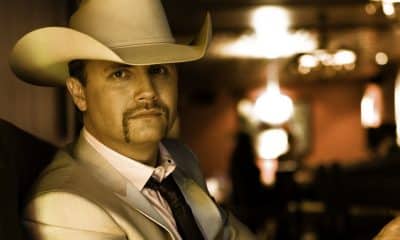
 Interviews5 years ago
Interviews5 years agoJohn Rich – The Interview
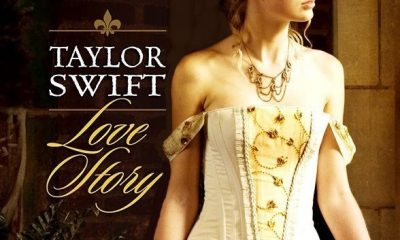
 Song Reviews16 years ago
Song Reviews16 years agoTaylor Swift – “Love Story”

 Interviews5 years ago
Interviews5 years agoHoneyhoney on Hiatus: Revisit our 2008 Interview with Suzanne Santo
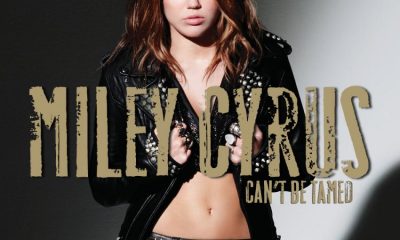
 Album Reviews14 years ago
Album Reviews14 years agoAlbum Review: Miley Cyrus – Can’t Be Tamed
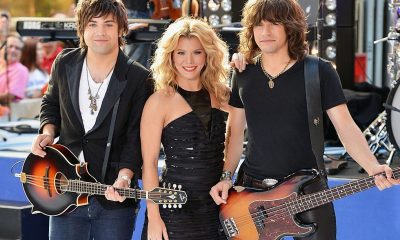
 Song Reviews6 years ago
Song Reviews6 years agoThe Band Perry – “Hip To My Heart”
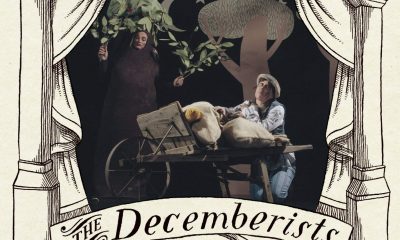
 Columns5 years ago
Columns5 years agoThe Link Between Folk Music’s Past and Present
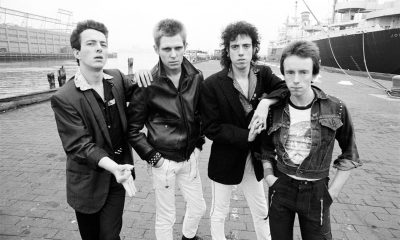
 Columns5 years ago
Columns5 years agoIs Marketing Killing Rock and Roll?

